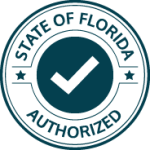Florida Department of Highway Safety and Motor Vehicles (DHSMV) Forms
Nearly every service offered by the DHSMV requires a special form dedicated to that particular service. While the average person will only ever need to perform a few of the most common services offered, dozens of forms exist for everything under the sun. In an effort to save time and make your trip to the DHSMV office a little easier, take some time to learn about the most common forms used by the Florida DHSMV. All of these are available for download from the DHSMV document library, so you can even print them and take them with you during your visit.
The Florida Drivers Handbook
The Florida Drivers Handbook is the single best source of Florida traffic rules and regulations. It also details the DHSMV and its policies regarding drivers license applications, registrations and renewals, vehicle titling, and other administrative services. The drivers handbook is designed to answer commonly-asked driving questions without having to go to a DHSMV office or search for answers online. You can pick up a copy directly from any DHSMV office or download the entire guide for convenient reading.
Application for Certificate of Title with/without Registration (Form 82040)
Whenever you buy a new or used car, one of the first things you must do is title it and get it registered under your name. There are big fines associated with late titling or registration, so it’s a good idea to get the forms you need from the DHSMV website, fill them out, and bring them to the office as soon as you can. You’ll need an Application for Certificate of Title (Form 82040) to complete this process, filled out with your personal information along with information about your vehicle. After you turn it in, you will receive your title in the mail shortly, and it is your responsibility to keep it in a safe place until you sell the car.
Notice of Sale and/or Bill of Sale for a Motor Vehicle (Form 82050)
When you buy or sell a car in Florida, you always want to keep a thorough record of the transaction. Your certificate of title will act as legal proof of your ownership of the car, but sometimes it’s not enough to record the details of the transaction itself between you and the other party involved. A Bill of Sale (Form 82050) is the most convenient way to protect both of you from misunderstandings or deliberate fraud during and after the transfer of a vehicle’s ownership. A proper bill of sale contains information about both the buyer and the seller, as well as everything about the vehicle (including make, model, year of manufacture, and current odometer reading).
Change of Address Form
The DHSMV can only do its job effectively if it has accurate information and records to work from. Your drivers license contains important information about you like your legal name and registered address. If you move, you must notify the DHSMV by filling out a Change of Address Form so that they can make the appropriate changes to their records. Failing to register a change of address after moving could result in fines and a delay in all other services you perform through the DHSMV, so don’t procrastinate after your move.










